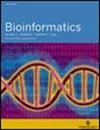IntelliGenes: A novel machine learning pipeline for biomarker discovery and predictive analysis using multi-genomic profiles
IF 5.4
3区 生物学
Q1 BIOCHEMICAL RESEARCH METHODS
引用次数: 0
Abstract
In this article, we present IntelliGenes, a novel machine learning (ML) pipeline for the multi-genomics exploration to discover biomarkers significant in disease prediction with high accuracy. IntelliGenes is based on a novel approach, which consists of nexus of conventional statistical techniques and cutting-edge ML algorithms using multi-genomic, clinical, and demographic data. IntelliGenes introduces a new metric i.e., Intelligent Gene (I-Gene) score to measure the importance of individual biomarkers for prediction of complex traits. I-Gene scores can be utilized to generate I-Gene profiles of individuals to comprehend the intricacies of ML used in disease prediction. IntelliGenes is user-friendly, portable, and a cross-platform application, compatible with Microsoft Windows, macOS, and UNIX operating systems. IntelliGenes not only holds the potential for personalized early detection of common and rare diseases in individuals, but also opens avenues for broader research using novel ML methodologies, ultimately leading to personalized interventions and novel treatment targets. Availability The source code of IntelliGenes is available on GitHub (https://github.com/drzeeshanahmed/intelligenes) and Code Ocean (https://codeocean.com/capsule/8638596/tree/v1). Supplementary information Supplementary data are available at Bioinformatics online.IntelliGenes:利用多基因组图谱进行生物标记物发现和预测分析的新型机器学习管道
在这篇文章中,我们介绍了 IntelliGenes,这是一种用于多基因组学探索的新型机器学习(ML)管道,可高精度地发现对疾病预测有重要意义的生物标记物。IntelliGenes 基于一种新颖的方法,它将传统统计技术和前沿的 ML 算法结合在一起,并使用多基因组、临床和人口统计学数据。IntelliGenes 引入了一种新指标,即智能基因(I-Gene)得分,用于衡量单个生物标记对复杂性状预测的重要性。I-基因分数可用于生成个人的I-基因图谱,以了解用于疾病预测的ML的复杂性。IntelliGenes 用户界面友好,便于携带,是一款跨平台应用程序,兼容 Microsoft Windows、macOS 和 UNIX 操作系统。IntelliGenes 不仅有可能实现对常见和罕见疾病的个性化早期检测,还能利用新型 ML 方法为更广泛的研究开辟道路,最终实现个性化干预和新型治疗目标。可用性 IntelliGenes 的源代码可在 GitHub (https://github.com/drzeeshanahmed/intelligenes) 和 Code Ocean (https://codeocean.com/capsule/8638596/tree/v1) 上获取。补充信息 补充数据可在 Bioinformatics online 上获取。
本文章由计算机程序翻译,如有差异,请以英文原文为准。
求助全文
约1分钟内获得全文
求助全文
来源期刊

Bioinformatics
生物-生化研究方法
CiteScore
11.20
自引率
5.20%
发文量
753
审稿时长
2.1 months
期刊介绍:
The leading journal in its field, Bioinformatics publishes the highest quality scientific papers and review articles of interest to academic and industrial researchers. Its main focus is on new developments in genome bioinformatics and computational biology. Two distinct sections within the journal - Discovery Notes and Application Notes- focus on shorter papers; the former reporting biologically interesting discoveries using computational methods, the latter exploring the applications used for experiments.
 求助内容:
求助内容: 应助结果提醒方式:
应助结果提醒方式:


